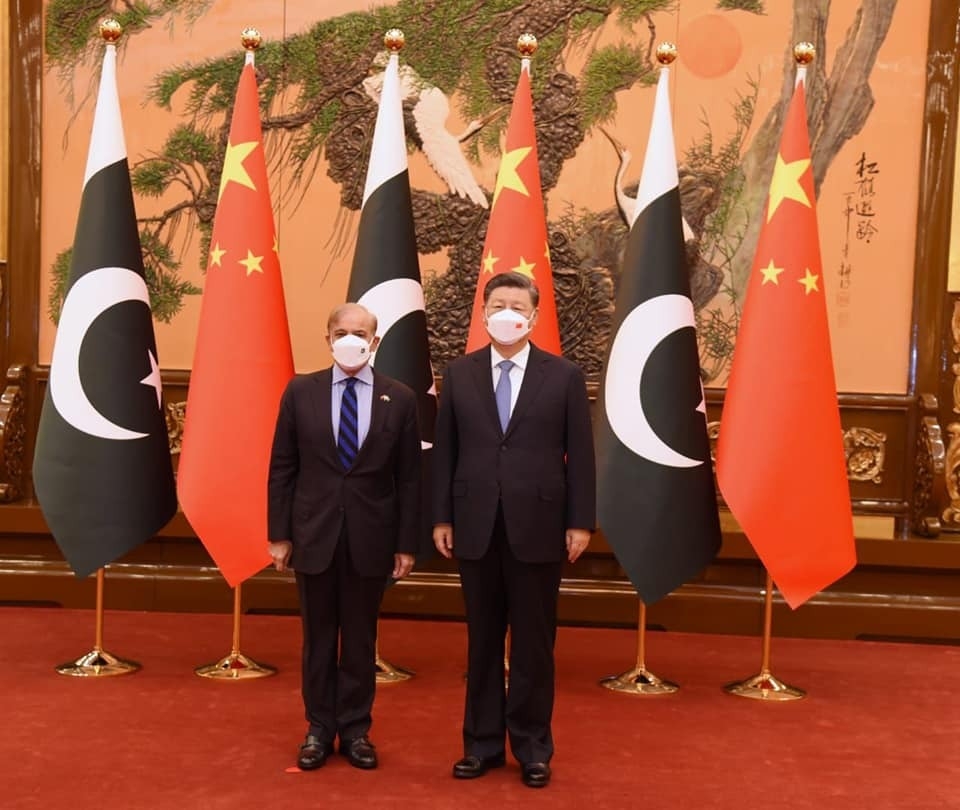The report highlights a major concern regarding the massive decline in forex reserves. In addition, inflation in Pakistan reached a peak of 38 per cent in May 2023. The report on its new, short-term bailout loan of USD 3 billion for Pakistan is a damning indictment of the Shehbaz Sharif government’s economic and financial policies
The International Monetary Fund (IMF) recently issued a scathing 120-page report which brought attention to the considerable economic challenges confronting Pakistan. These challenges stem from a combination of factors, encompassing a political crisis, the impact of last year’s floods, tightening external financing conditions, and unfavourable domestic policies. As per the report, Pakistan’s economy is currently grappling with a slowdown, evident in the severity of the situation as reflected by key indicators.
The report highlights a major concern regarding the massive decline in forex reserves. In addition, inflation in Pakistan reached a peak of 38 per cent in May 2023. Furthermore, the IMF emphasises the growing social discontent in Pakistan, which was particularly evident in the recent violent political turmoil. The report on its new, short-term bailout loan of USD 3 billion for Pakistan is a damning indictment of the Shehbaz Sharif government’s economic and financial policies.

It is noteworthy that since 2008, Pakistan has been continuously under IMF supervision. Over these 15 years, there have been four financial programmes, including the recently announced Stand-by Arrangement (SBA) of USD 3 billion. Out of these 15 years, Pakistan has spent 11 under Fund programmes and never completed one. The new SBA may save Pakistan from defaulting temporarily. It is also the last-ditch attempt to pressure the government in Islamabad to hold general elections and bring back political stability in the country.
Nevertheless, the new financial arrangement is evidence that the IMF’s USD 6 billion Enhanced Funding Facility (EFF) program ended without success. Consequently, the IMF has opted for a nine-month SBA, marking Pakistan’s 23rd IMF program. Given the current state of Pakistan’s economy and a never-ending political crisis, it is likely that the country will find itself entering a new IMF program next year.
It is strange that despite so many failures, Pakistan manages to strike a new financial deal with the IMF. The report outlines the new program’s objectives, several of which will directly burden the people of Pakistan, such as increased energy prices. Pakistan will reportedly need to increase the base power tariffs by approximately PKR 8 per unit, raising it from around PKR 24 to PKR 32.
When various charges, surcharges, levies, and taxes are added, electricity will become exceptionally expensive in Pakistan. However, the IMF insists on this measure due to Pakistan’s highly unsustainable electricity economics, leading to the exponential rise of circular debt to PKR 2.6 trillion. In addition to electricity tariffs, Pakistan will also be required to raise the petroleum levy by around PKR 10 per litre.
It is evident that the cost of these adjustments will disproportionately burden the poor and salaried sections in Pakistan. On one hand, this situation reflects the IMF’s inability to enforce reforms in Pakistan effectively. On the other hand, it speaks to Pakistan’s pressure tactics: pushing things to the edge of the abyss, employing a “good cop-bad cop” approach, and ultimately resorting to yielding to everything and accepting whatever they can get to survive and fight another day.
The IMF report assigns blame to Pakistan’s Ministry of Finance, under the Shehbaz Sharif-led coalition government, and the State Bank of Pakistan (SBP) for frequently meddling with the “market-based exchange rate mechanism,” which has led to the growth of a significant foreign exchange black market.
Furthermore, it criticises the SBP for resisting a timely increase in interest rates. The IMF’s projections for Pakistan indicate moderate economic growth of approximately 2.5 per cent in fiscal year 2024 and above 25 per cent inflation. The presence of external challenges and the necessity for stringent macroeconomic policies will limit the extent of the economic recovery. The IMF has issued a warning that the continuation of the new program will depend on the implementation of fiscal discipline, a return to a “market-determined exchange rate,” and the proper functioning of the foreign exchange market, among others.
Additionally, the report states that external financing risks remain significant, and any delays in the disbursement of external financing from International Financial Institutions (IFIs) and bilateral creditors could endanger the fragile external balance. The spillovers from the Russia-Ukraine war, manifested through high food and fuel prices, along with tighter global financial conditions, continue to exert pressure on Pakistan’s annual budget.
Lastly, the report suggests Pakistan needs USD 28.3 billion, which includes a USD 6.4 billion current account deficit for this fiscal year. Otherwise, Pakistan will continue to sink increasingly into a financial and economic mess.
Pakistan’s economy is anticipated to experience fluctuations for at least the next two-three years and faces substantial risks. The IMF states that “elevated gross financing needs continue to pose high risks to debt sustainability, particularly as fiscal and reserve buffers have been depleted,” and that “the overall risk of sovereign stress is high.”
Credit rating agencies have downgraded Pakistan to a rating just above default, underscoring the significance of multilateral and official bilateral support in meeting debt obligations. In conclusion, the IMF acknowledges that the Pakistani government is facing an uphill task to stabilise the dwindling economy despite the new loan.









